
Our Pet Emergency Centres will open 24/7 on Anzac Day should you need us.
If you need a veterinary help, then please contact one of our 24 hour Pet Emergency Centres in Melbourne:
Essendon Fields: (03) 9379 0700
www.animalemergency.com.au
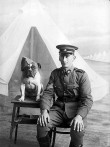
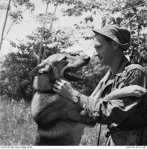
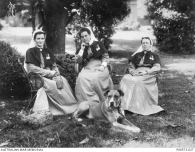
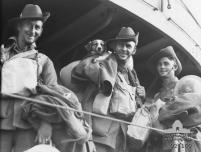

Our Pet Emergency Centres will open 24/7 on Anzac Day should you need us.
If you need a veterinary help, then please contact one of our 24 hour Pet Emergency Centres in Melbourne:
Essendon Fields: (03) 9379 0700




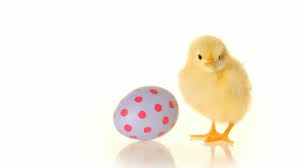
VET OPEN GOOD FRIDAY, EASTER SUNDAY & EASTER MONDAY
Animal Accident & Emergency
will be OPEN 24/7 during the Easter Holiday period.
Our Pet Emergency Centres are always open as we never close even on public holidays.
If you need a vet on Good Friday, Easter Sunday or Easter Monday
then please contact one of our 24 hour Pet Emergency Centres in Melbourne:
Essendon Fields: (03) 9379 0700


******* EXTREME HEAT FORECAST ******
Melbourne’s forecast tomorrow is for extreme heat. Extreme heat causes significant stress for all animals.
To reduce the impacts of high temperatures on your pet, please ensure:
* the provision of a plentiful supply of clean cool water
* shade is essential if your pet is outside
* walk your dog early to avoid the hot mid day sun
* don’t over exercise
* never leave your pet in a hot car
* provide ice blocks and/or wet towels
If you are concerned your pet is be suffering from the heat get veterinary help immediately or one of our 24 hour Pet Emergency Centres in Melbourne:
Animal Accident & Emergency:
Essendon Fields: (03) 9379 0700
Point Cook: (03) 8368 7400

***Valentines Day Chocolate Toxicity Warning***
Valentine’s Day is a time to spoil our beloveds, woo our secret lovers, and remember to call our mothers which means that Melbourne households will be filling up with chocolate. We are asking all pet owners to be cautious of chocolate around your pets especially this weekend.
Older pets, or animals with pre-existing heart conditions, are more susceptible to the effects of chocolate poisoning and at higher risk of sudden death due to cardiac arrest.
The common clinical signs of chocolate poisoning are:
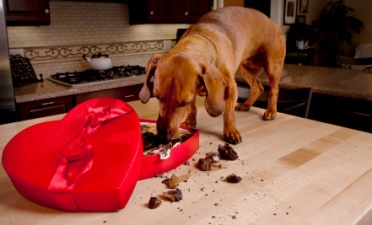
Why Chocolate is dangerous to pets:
Cooking/baking chocolate and dark chocolate pose the biggest danger, as they contain the largest concentration of theobromine. A 10kg dog would only have to eat 50 grams of milk chocolate to show clinical signs of chocolate toxicity or as little as 30 grams of dark chocolate. Whereas a mere 15 grams of baking chocolate (containing 70% cocoa) could lead to chocolate toxicity. Keep in mind that if the chocolate contains other harmful ingredients such as raisins/sultanas, alcohol or macadamia nuts then it may cause further complications.
It contains the alkaloid theobromine, which has similar effects as caffeine and is poisonous in large amounts. The toxicity level of the chocolate depends on the type and amount that is consumed, as well as the size of the dog. Toxic doses are generally considered to be 100mg of theobromine per kilogram of body weight, with fatal doses often occurring at over 200mg per kilogram.
Ingestion of chocolate in dogs does often lead to significant illness and so should be taken seriously by pet owners and treated as an animal emergency. As with all things, it’s better to be safe than sorry, so if you believe your dog has ingested any amount of chocolate you should immediately consult an emergency veterinarian and bring it in for examination at a 24 hour animal emergency centre.
Essendon Fields: (03) 9379 0700
Point Cook: (03) 8368 7400

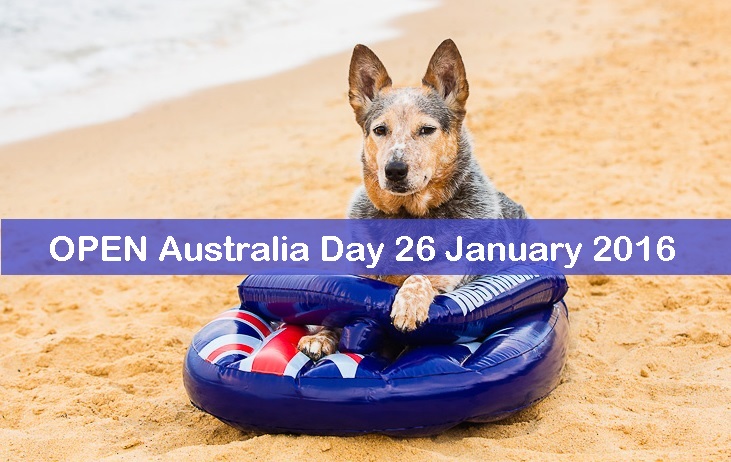
There’s nothing like celebrating AUSTRALIA DAY!
OPENING HOURS FOR AUSTRALIA DAY
Animal Accident & Emergency will be OPEN 24/7 on Australia Day, Tuesday 26th January 2016.
We have two Pet Emergency Centres in Melbourne which will be OPEN 24 hours should you need us:
Essendon Fields: (03) 9379 0700
Point Cook: (03) 8368 7400

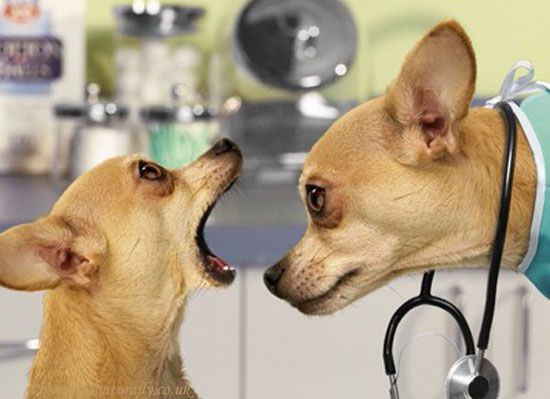
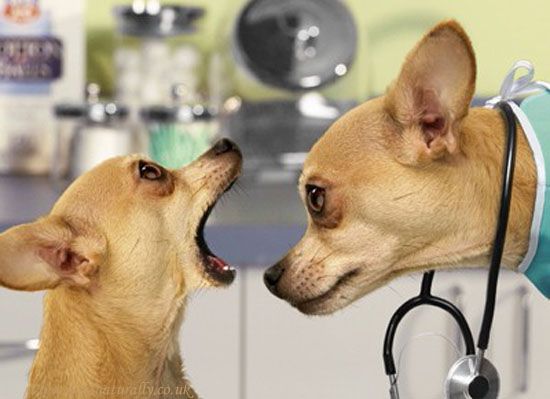
24 Hour Vet Care Melbourne
Animal Accident and Emergency (AAE) is a purpose-built animal emergency centre servicing Melbourne. It provides 24-hour animal emergency services. There are two great locations – Essendon and Point Cook. The centres are located to provide direct and easy freeway access. Time is precious in any emergency.
Our Melbourne Vet Emergency Centres provide dedicated emergency care 24/7. We are not just an after hours vet clinic. Our whole focus is emergency and critical care.
If you have a Veterinarian emergency please contact one of our 24 Hour Pet Emergency Centres in Melbourne:
Essendon Fields (03) 9379 0700
Point Cook (03) 8368 7400

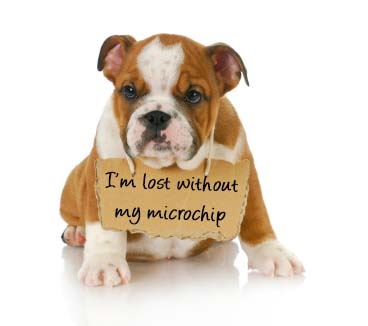
Celebrating New Year’s Eve is a great tradition but it is one of our busiest nights for lost/stray pets.
Is Your Pet Ready for New Years Eve:
1. Have you microchipped your pet?
2. Are they wearing a collar ID tag?…
3. Are your contact details are up-to-date with the National Pet Register?
By doing these 3 things it will give you and your pet the best chance of being reunited in the event they become lost.
***Important Numbers***
National Pet Register can be contacted 24/7 on 1300 734 738
Lost Dogs Home can be contacted (03) 9329 2755
Essendon Fields: (03) 9379 0700
Point Cook: (03) 8368 7400

**Snake Warning As Weather Warms Up in Melbourne**
With the weather warming up, Snakes are now emerging from hibernation and becoming active.
If you are out walking your pets you should keep an eye on your dog and avoid walking in long grass.
The common signs of Snake bite include pets who suddenly start vomiting, having trouble walking, urinating blood, collapsing.
If you think that your pet may have been bitten, then you need to take them to your local vet or to one of our
24 hour Pet Emergency Centres as they need to be seen as soon as possible!!
Essendon Fields: (03) 9379 0700
Point Cook: (03) 8368 7400
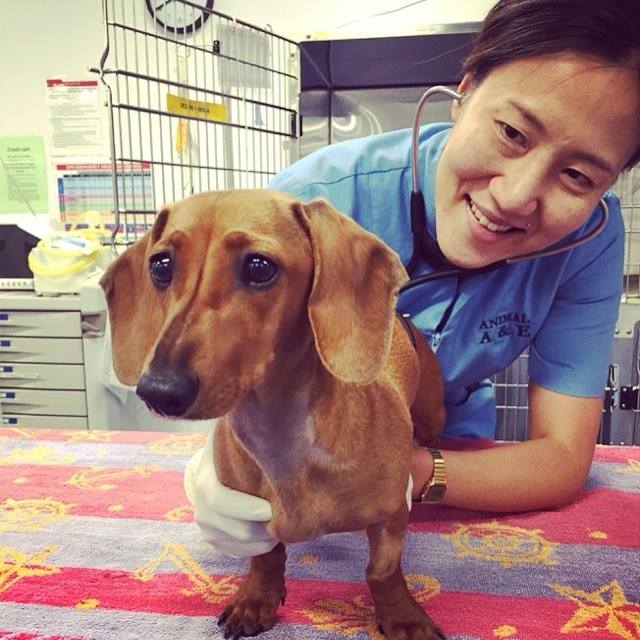
This is the adorable Twiggy, a 7 month old Dachshund puppy who has received emergency veterinary care by Dr Jina Song for Chinaberry toxicity.
The Chinaberry tree is also know as White Cedar tree or “Melia Azedarach” and is highly toxic.
Twiggy presented at our Point Cook 24hr Pet Emergency Centre suffering an acute onset of vomiting.
Twiggy was most fortunate as her carers saw her eating the berries and rushed her to our centre. Her treatment was successful although she is continuing treatment due to expected complications from stomach insults from her ordeal.
The entire tree is toxic (bark, leaves and flowers) with higher toxin amounts in the berries.
Once eaten, your pet will quickly show varying signs:
– vomiting,
– tremors,
– seizures,
– diarrhoea,
– weakness,
– death (which can occur within 24 hours)
The fruit is highly toxic to animals and people, most likely causing death from kidney, liver failure and central nervous system problems.
If your pet ingests these berries please contact your veterinarian or one of our 24hr Pet Emergency Centres immediately.
Essendon Fields: (03) 9379 0700
Point Cook: (03) 8368 7400

Day Light Savings starts tomorrow Melbourne!
Please push your clock an hour forward.
ANIMAL ACCIDENT & EMERGENCY
We are OPEN 24 hours 7 days a week if your pet needs veterinary help.
Essendon Fields (03) 9379 0700
Point Cook (03) 8368 7400
****REMINDER****
Day Light Savings will start this Sunday for Melbourne.
Please push your clock an hour forward.
Animal Accident & Emergency is OPEN 24 hours 7 days a week if your pet needs veterinary help.
Essendon Fields (03) 9379 0700
Point Cook (03) 8368 7400
Georgy is a gorgeous Burnese Mountain Dog who presented to Animal Accident and Emergency Point Cook last week for severe abdominal pain, abdominal distension (bloated belly) and dry retching (attempting to vomit without producing any vomit).
This presentation and breed are typical of a disease commonly known as BLOAT. The technical name for bloat is “gastric dilation and volvulus” or “GDV” for short.
In cases of GDV the stomach has become distended and has filled with gas and then twisted over on itself. This is a life threatening condition as all the blood vessels that supply the stomach get kinked off like a bent hose pipe and this stops the blood flow to the stomach wall. The stomach wall begins to die as a result of the lack of blood supply. The stomach then inflates further as gas cannot escape out of a twisted stomach. The inflating stomach blocks off blood that is returning to the heart via the large vessels in the abdomen. This causes shock. Another complication of the overly inflated stomach is that it puts pressure on the diaphragm (the muscle that makes you breath) thus making it very difficult for these poor doggies to breath!
Please see this link for an animation of what happens in GDV:
In summary, the main things that happen in a bloat case are:
So now that we all know about GDV and what happens, what can we do to correct it and save your beloved dog?
The first thing to do is confirm the vets suspicion of GDV with a x-ray of the patient’s belly. This is exactly what we did for Georgy. If the vet suspects that your dog has GDV, you may be asked if we can take an x-ray immediately to check if that is indeed what is happening.
Unfortunately, once the twisted stomach has been confirmed, the only way to fix what is happening is surgery. Before we get into what is done surgically to correct this condition we need to stabilise the dog first. Stabilisation involves deflating the stomach by either passing a tube down their throat or using a needle to let some gas out. Given that these patients are in shock fluids will need to be started immediately in order to help their heart and circulation. This condition is also painful and pain relief will be provided in this phase.
The next step is surgery. Surgery involves anaesthetising the patient and an incision (cut) into the abdomen (belly). The stomach is untwisted and inspected carefully. Sometimes the stomach will be dead in places and these places will have to be removed because dead tissue cannot be left behind. The spleen (a blood storage organ) is closely attached to the stomach and sometimes this may have twisted with the stomach and may need to be removed as well- this may sounds like a big deal but dogs do just fine without their spleens. Once the stomach and spleen are dealt with, the stomach is then stitched to the abdominal wall to prevent it twisting over on itself again – this is called a GASTROPEXY and is a VERY IMPORTANT part of the surgery as this condition will recur if this is not done!
The rest of the abdomen is inspected and then closed.
RECOVERY
Recovery time for this surgery depends on a lot of different things. Minimum time in hospital after surgery is 24 hours but some patients may require a few days. The longer the stomach is twisted for before surgery is performed, the more complications are encountered and the longer the recovery period.
WHAT TO LOOK OUT FOR?
WHAT TO DO IF YOU THINK YOUR PET HAS BLOAT?
Contact a vet immediately. As mentioned before, time is of the essence in both saving your dog and in minimising complications. AAE Essendon and Point Cook are open 24 hours a day 365 days of the year.
HOW CAN YOU PREVENT GDV?
DISPELLING THE MYTHS
We are happy to say that the lovely Georgy made a full recovery from her GDV and subsequent surgery with very few complications.
Animal Accident & Emergency has two 24 Hour Pet Emergency Centres in Melbourne.
Our Pet Emergency departments are OPEN 365 days, providing 24 Hour Critical Care.
Essendon Fields: (03) 9379 0700
Point Cook: (03) 8368 7400
Look at those gorgeous amber eyes!
Vixen is a 15 year old long hair domestic cat who has just checked in at Animal Accident & Emergency for I131 Radioactive Iodine Therapy.
I131 Radioactive Iodine Therapy is for the treatment of hyperthyroidism in cats.
Vixen has been referred to us by Fitzroy Veterinary Hospital and will be under the care of Dr Linda Abraham while under going treatment.
I131 Radioactive Iodine Therapy
http://www.animalemergency.com.au/i131-cat-hyperthyroid-tre…
We do not recommend rabbits and guinea pigs together for the following reasons:
Guinea pigs rarely cohabit well with other species. If you have indoor dogs and cats you need to a secure enclosure.
The Melbourne Rabbit Clinic is the first and only hospital in Australia to treat rabbits and guinea pigs exclusively.
Melbourne Rabbit Clinic have an absolute passion for rabbits and guinea pigs offering high quality veterinary care especially tailored for Rabbits and Guinea Pigs.
Melbourne Rabbit Clinic is consulting at Animal Accident & Emergency our 24 hour Vet Emergency Centres – Essendon Fields & Point Cook
To book an appointment please ring the Melbourne Rabbit Clinic directly on (03) 9758 9879.
For more information please visit our website: www.animalemergency.com.au
Full Time & Casual Emergency Veterinary Nursing Positions
Animal Accident & Emergency would like to announce that we now have a full time nursing position and casual positions available. We are looking for people who are excited by emergency nursing and are looking for a challenge. These positions would ideally suit an experienced nurse.
Animal Accident & Emergency operates on a 24 hour basis and employment is shift based. Shifts are scheduled to include night, day and weekend work. This would be a great opportunity for those looking at completing a Diploma in Veterinary Nursing. Successful applicants will be required to work at both our locations, Point Cook and Essendon Fields.
Applications will close on Friday 5 June 2014. The positions available are for immediate start. Please send a résumé including a referee list to jobs@animalemergency.com.au . Attention your application to HealthCare Team Manager and advise which position you are applying for.
Please note that this is not a training a position. Applicants must have as a minimum a Cert IV in Veterinary Nursing. All applicants will be contacted after the application close date.
For more information please visit our website: www.animalemergency.com.au
With Mothers Day approaching this weekend, we thought it was important to write about Lily Flower Toxicity in Cats.
Lily flowers are toxic for cats and can cause death. Toxicities in pets are a common cause of vet emergency. Lily toxicity is seen most often during holidays and on special occasions such as Valentine’s day and Mother’s day when flower bouquets are given as gifts.
Many lily species are toxic to felines and can include, but not limited to:
• Easter lily
• Tiger lilyR
• Rubrum lily
• Stargazer Lily
• Japanese show lily
• Red lily
• Western lily
• Wood lily
• Day lily
All parts of the plant are toxic and a small amount, even 1-2 leaves, can be lethal. Toxicity can cause kidney failure, vomiting, diarrhea and seizures.
If your cat potentially ingested lily’s prompt and early intervention often leads to a good prognosis, however once clinical signs develop and progress then it may be too late to reverse the damage done.
If you have any concern about your cat ingesting Lilies you should contacting your local vet or 24 hour pet hospital immediately as lily ingestion is an animal emergency.
Along with being able to deal with any animal emergency, Animal Accident & Emergency also houses a critical care unit. This is complementary to our 24 hour vet – Melbourne pets requiring intensive care have access to experienced care around the clock.
Critically ill patients have access to central venous pressure monitoring, positive pressure ventilation or respirators, enteral feeding and parenteral feeding catheters and more.
Critically ill animals will likely need the assistance of a team of doctors.
Essendon Fields (03) 9379 0700
Happy Labour Day from the staff at AAE
Pet Emergency Centre Essendon Fields (03) 9379 0700
Pet Emergency Centre Point Cook (03) 8368 7400
OPEN 24/7 including public holidays
Animal Accident & Emergency will be OPEN Labour Day!
Animal Accident & Emergency will be OPEN 24/7 over the long Labour Day weekend.
We have two Pet Emergency Centres in Melbourne which will be OPEN 24 hours on Labour Day.
Essendon Fields (03) 9379 0700 Point Cook (03) 8368 7400
Happy Labour Day!
OPENING HOURS FOR LABOUR DAY WEEKEND
Animal Accident & Emergency will be OPEN 24/7 over the long Labour Day weekend.
We have two Pet Emergency Centres in Melbourne which will be OPEN 24 hours on Labour Day.
Essendon Fields (03) 9379 0700 Point Cook (03) 8368 7400
Happy Labour Day!
Southpaws is excited to announce that we are now seeing cases and performing surgery at Animal Accident and Emergency in Point Cook.
Dr. Charles Kuntz is consulting on Friday mornings and operating on Friday afternoons.
AAE Point Cook is equipped with a new pencil cone CT scanner which provides excellent image quality with minimal radiation exposure. All types of surgical procedures including oncologic surgery, neurosurgery, orthopaedic surgery (including arthroscopy) and soft tissue surgery will be offered at Point Cook.
Please call Southpaws on (03) 9553 1775 to book appointments. Email info@southpaws.com.au if you have questions.
As always Southpaws surgical consultations at Animal Accident & Emergency Point Cook are free-of-charge
Oliver is a 7 year old Chihuahua has CHF (Congestive Heart Failure)
Yesterday, Oliver’s owner noticed an increased respiratory effort and brought him into our Essendon Fields Pet Emergency Centre.
Oliver was placed in an oxygen chamber and admitted for supportive care.
The leading cause of heart failure in dogs is chronic valvular disease, next is dilated cardiomyopathy and then congenital heart disease and heartworms.
What is Congestive Heart Failure?
CHF occurs when either the heart muscle or the heart values are diseased and the heart is not able pump blood efficiently. This causes a build up of fluid in the lungs and also sometimes the abdomen. Congestion the lungs means not enough oxygen is available to the body.
Symptoms:
Unchecked heart problems can make things harder on your dog and even shorten their life span. Receiving the right treatment and care your dog can go on to live a long life.
Sadly, Oliver’s heart disease will continue to progress and he is on medication for the rest of his life. The medication will give Oliver a happy and comfortable life for as long as possible.
Oliver has gone today with his caring owner and the staff at AAE wish him all the best.
It’s time for a shout out to one of our patients!
Kitty is a very cuddly cat who has been under the care of Dr Linda Abraham for the last week. Kitty was referred from Altona Veterinary Clinic for treatment of an over active thyroid.
Kitty is one of the many cats that Dr Linda has treated with radioactive Iodine (i131) for Feline Hyperthyroidism. For most cats that are treated, their over active thyroid returns to normal and they loose the need for daily medication. Removing the need for daily medication greatly improves the health and well being for the pet and owner.
Animal Accident & Emergency Point Cook, is one of limited facilities in Australia that are licenced to perform treatment for cats. We perform the service weekly and are happy to discuss options for therapy with you.
Kitty will be discharged today.
For more information on I131 cat treatment click on the following link: I131 Radioactive Iodine Therapy
Animal Accident & Emergency have a created a page for local lost pets within Melbourne.
What to do when you loose your pet:
For a list of local Animal shelters and Council number click on the attached link:
http://www.animalemergency.com.au/lost-pets.html
If you think your pet is suffering from heat stroke, please call Animal Accident & Emergency or contact your local vet without delay.
Essendon Fields: (03) 9379 0700
Point Cook: (03) 8368 7400
OPENING HOURS FOR AUSTRALIA DAY WEEKEND
Animal Accident & Emergency will be OPEN 24/7 over the long Australia Day weekend.
We have two Pet Emergency Centres in Melbourne which will be OPEN 24 hours on Australia Day.
Essendon Fields (03) 9379 0700
Point Cook (03) 8368 7400
Happy Australia Day!
Animal Accident & Emergency would like to introduce an Australian first. In December, AAE installed a CT scanner in our Point Cook 24Hr Emergency Centre. The CT unit by Fidex is a major advancement in technology and unique in many ways. Traditional CT units are common place in human and pet medicine. They work by taking several hundred radiographs and then using computer programs to “join” the images together. This allows the Doctor to look at body organs and structures in much more detail.
The new unit now operating at Animal Accident & Emergency uses the latest technology to combine a traditional style CT unit with an X-Ray unit and Fluoroscopy. The combination allows us to combined three different devices into one unit.
At present you would need three different units to perform a CT, an X-Ray or a Fluoroscopic study. The Fidex combines the functionality of the three different machines into one user friendly unit. One of the functions we love is seeing the images in a 3D perspective. It helps the pet owner visualise the problem that their pet has. We can even strip back tissue layers which is great for planning for complex cancer surgeries.
The Fidex unit has some major benefits to patients. It is able top generate X -Ray images using minimal doses of radiation. This means that we can take radiographs or perform a CT and the amount of radiation that the patient experience is far less. It also increases the safety for the Vet Team.
The unit itself is environmentally friendly. Traditional CT units require substantial amounts electricity to operate. They require a specialised air-conditioning plant to prevent them from overheating. Our Fidex uses minimal electricity, runs in any standard air-conditioned building and plugs directly into a normal PowerPoint. This also dramatically reduces the running costs of the unit which means savings for pet owners.
The unit is small, compact but mighty and we were able to install it in a standard sized room.
Our Fidex unit is the first in Australia and is truly a unique installation. The ease of use, lower radiation emission and speed of the unit means that we can provide sick pets with advanced imaging at a cost effective price. It provides more options then currently available at most veterinary centres.
Our specialists and Emergency team are using the Fidex for a variety of sick pet conditions. With trauma and road accidents, we can scan for internal bleeding as well as bone fractures. Our Medicine Specialist Dr Linda Abraham is able to perform cancer scans which help identify forms of cancer within the body.
The following are some of the used of the unit:
To view the Fidex unit in action click on the following link: https://www.youtube.com/watch?v=hJQE1ZBkzvQ
For more information contact our 24hr Pet Emergency Centre: (03) 8368 7400
Tips to Keep Your Pets Cool in Summer
Know the Signs of Heat Stress:
If you think your pet is suffering from heat stroke, please call Animal Accident & Emergency or contact your local vet without delay.
Essendon Fields: (03) 9379 0700
Point Cook: (03) 8368 7400
Animal Accident & Emergency will be OPEN 24/7 during the New Year period should you need us.
WE NEVER CLOSE
Essendon Fields (03) 9379 0700
Point Cook (03) 8368 7400
Wishing you and your fur babies a very Happy New Year.
Animal Accident & Emergency will be OPEN 24/7 during the Christmas and the New Year period should you need us.
WE NEVER CLOSE
Wishing you and your fur babies a very Merry Christmas and a Happy New Year.
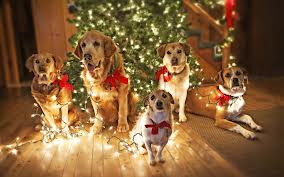
Here’s how to keep your pet safe and healthy over the festive season:
Christmas decorations, Tinsel & flashing lights
Dogs & Cat’s love tinsel, bubbles, flashing lights they see it as a “toy” to play with or carry in their mouths. But a nibble can lead to a swallow and hence lead to an obstructed digestive tract, severe vomiting, dehydration and possible surgery.
Safety tips for pets:
In the event of an emergency on Christmas Day, call AAE After Hours Emergency Veterinary Hospital on:
(03) 9379 0700 – Essendon Fields
(03) 8368 7400 – Point Cook
Animal Accident & Emergency is open 24 hours 7 days a week, Melbourne Pet Emergency Centre.
Alfred’s owners had attempted to manually fix the problem but with no success.
When Alfred arrived at our Essendon Pet Emergency Centre his prolapsed penis was very swollen/inflamed that our emergency vets needed to place Alfred under a general anaesthetic.
Causes of this condition can be from excess licking, sexual excitement or foreign bodies getting up under the skin(hair) and trauma.
If the swelling does not resolve within 30 minutes then immediate veterinary treatment is required due to tissue damage and urethral obstruction. In some cases the tissue of the penis dies off due to lack of blood supply and the dog requires a partial penis amputation.
In Alfred’s case our emergency vets had been able to replace his penis back into it’s normal position. He is a very sweet 5 month old Basset Hound puppy and the staff at AAE wish Alfred a speedy recovery.
Along with being able to deal with any animal emergency 24/7, Animal Accident & Emergency also houses a critical care unit at our Animal Hospitals. This is complementary to our Melbourne pets requiring intensive care, they have access to experienced care around the clock.
Critically ill patients have access to central venous pressure monitoring, positive pressure ventilation or respirators, enteral feeding and parenteral feeding catheters and more.
Critically ill animals will likely need the assistance of a team of emergency specialist vets.
http://www.animalemergency.com.au/contact-us-1.html
Animal Accident & Emergency is seeking applicants for a full time emergency and critical care veterinarian. Our hospitals are purpose-built 24-hour emergency, critical care and referral facilities, with the latest up-to-date equipment. We have everything you will need to provide the best standard of care including multi-parameter patient monitors, in-house laboratory, ultrasound, endoscopy, digital radiography, mechanical ventilation, CT and fluoroscopy. The position will involve shift work at both our Essendon and Point Cook centres and would suit applicants looking to further their career within emergency and critical care.
The ideal candidate will possess the following:
Our successful candidate will have access to the following:
Employment is shift based, with rotations involving day, night, weekend and public holiday shifts.
The standard working week is 37.5 hrs.If you are interested in working with a great team with plenty of support and challenging and rewarding cases, please send your application to jobs@animalemergency.com.au
Animal Accident and Emergency (AAE) is a purpose-built animal emergency centre servicing Melbourne. It provides 24hr animal emergency services. There are two great locations – Essendon and Point Cook.
Our Melbourne Vet Emergency Centres provide dedicated emergency care 24/7. We are not just an after hours vet clinic. Our whole focus is emergency and critical care.
If you require treatment for an animal emergency, Melbourne’s AAE offers:
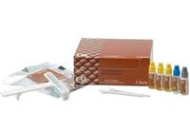
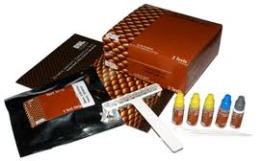 How We Diagnose Snake Bite in Pets
How We Diagnose Snake Bite in Pets
During summer we treat numerous pets with snake bite. It is a downside to living in Australia. In the Melbourne region, the most common snakes are Tiger snakes. Brown snake bites also occur but are less frequent. Tigers and Browns are very deadly. Bites from these snakes may kill pets within minutes. They have a mixture of toxins depending on the snake. Toxins may include: Neuro Toxin (affects nervous system and causes paralysis); Myotoxin (destroys muscles within the body); Coagulant Toxin (causes massive internal bleeding); Renal Toxin (affects kidney function).
To treat snake bite we use specific anti-venom therapy. While some pets may survive without anti-venom, the length of recovery and complications including death is much greater for these pets. Often these pets have had a minimal bite if they do survive.
Sometimes it is very easy to identify a snake bite – the pet was seen with a snake, starts vomiting and collapses. Other times we need to run specific tests to identify a snake envenomation.
Within our 24Hr Pet Emergency Centres we keep a range of tests to identify snake bites. We have specialised laboratory machines so that we can identify a snake bite quickly. Sometimes there is not one test that we use, but a range of tests.
One of the most important tests is the Snake Venom Detection Kit (SVDK). The SVDK was developed by CSL and is specific for all Australian venomous snakes. The test looks for free venom in urine (or blood). If you have been bitten, then within a short period of time, there will be free venom filtered into your urine by your kidneys. The SVDK identifies this venom and tells us what type of snake has bitten the pet. It means that we know that the pet has been bitten and what type of anti-venom should be used.
Some pets can play with a snake and not be envenomated. The SVDK can be used to identify such pets and if the test is negative, we can avoid giving anti-venom which is very expensive.
We also use the SVDK to guide therapy. If after receiving anti-venom, the test is still positive, it indicates that further anti-venom will benefit the pet. If it is negative, then we know that giving further expensive anti-venom is not required.
We stock numerous vials of anti-venom as well as SVDK at both our Melbourne Animal Hospitals. Vets now Open with immediate treatment for Snake Bite. If you need further advice, please contact any of our 24Hr Pet Emergency Centres:
Essendon 9379 0700
Point Cook 8368 7400
Rufus is a 9 month old Choc Point Burmese cat who presented to Animal Accident & Emergency as a referral from his regular vet for ongoing care after being diagnosed with a tail pull injury.
What is a Tail Pull Injury:
It is a common injury caused when a car runs over the cat’s tail pulling apart the sacral-lumbar or coccygeal vertebrae and stretching the nerves that go to the bladder, rectum, and tail.
Signs: Tail hangs loosely – paralysed tail, urinary and/or faecal incontinence to partial loss of sciatic nerve function.
Treatment: Cats will need to be seen by a vet and hospitalised so the bladder can be manually emptied and receive treatment to attempt to heal the nerves controlling the urination and defecation. The tail may need to be amputated.
All spinal cord injuries require immediate veterinary attention. Protect the cat’s spine and use a blanket or towel to lift the cat onto a flat surface like a board before transporting to the vet.
Rufus is currently receiving critical care at our Essendon Pet Emergency Centre, the staff at AAE wish Rufus a speedy recovery.
Pictured above: Rufus enjoying a neck rub from Dr Nicole Trigg after his morning examination.
Animal Accident & Emergency will be open on Melbourne Cup Day.
You can contact our Pet Emergency Centres 24 hours, 7 days a week as we never close.
Our Animal Hospitals provide 24hr animal emergency at two great locations – Essendon and Point Cook. The centres are located to provide direct and easy freeway access. Time is precious in any emergency.
Our Emergency Centres provide dedicated emergency care. We are not just an after hours vet clinic.
Essendon Fields: (03) 9379 0700
Point Cook: (03) 8368 7400
Halloween can be a lot of fun for you and your pets.
Just be careful and make sure your #pet’s #safety is in mind, here are some tips:
Costumes: If you want to dress your pet up for Halloween, that’s great but only if your pet doesn’t mind it as some animals can become very anxious. Make sure any costumes you put on your pets doesn’t constrict them and they are able to bark/meow and move freely.
Candy: Chocolate can be poisonous to dogs and cats and lots of sugar is bad for their digestion.
Trick-or-Treating: If you’re opening up your home to trick-or-treaters pets can be scared of kids in costumes so it’s better to have them in a safe place. Some might actually run out the door, so please be sure they have their ID tags on and are microchipped.
Happy Halloween for those celebrating today!!!
Animal Accident & Emergency: 24hour Pet Emergency Centre
1. Locking a dog in a car, even if the car windows are open it is too dangerous.
2. Exercising with a dog when there is excessive heat and humidity
3. Leaving your outdoor dog in the sweltering heat without adequate water or shelter/shade.
Some signs of heat stroke:
-Constant panting
-Dry gums that feel sticky to the touch
-Dark red gums
-Vomiting
-Wobbly
-Seizures
-Dark coloured urine
-Diarrhoea
-Difficulty breathing
-Collapse
If your pet is suffering from a heat stroke, then we need to see your pet as soon as possible.
• Cool them down with fans and water
• Phone us
• Drive to our emergency centres as safe as possible.
Essendon Fields: (03) 9379 0700
Point Cook: (03) 8368 7400
As all dog owners know, our dogs love to chew anything and everything. When they are puppies, it seems as if chewing toys, bones, socks or anything around the house is just a normal occurrence. However, sometimes our puppies and/or older dogs swallow something that just doesn’t go down as it should and can be potentially dangerous. It’s important to find out immediately what your dog has ingested.
You should next try to find out what toy or parts of a toy are and items are still around. You can then figure out what your poor dog might have swallowed to give your veterinarian a point of reference.
If your dog is choking on something, the best thing you can do is try to help your dog immediately. Choking for big dogs and small dogs are handled differently. Just as in humans, the goal is to get it out of your dog’s system immediately.
If you believe that your pet may have swallowed a bone or toy, then you need to contact us directly. We have two convenient emergency centers. Our Emergency Centres run 24Hr Intensive Care Units.
Animal Accident & Emergency – Essendon Fields 9379 0700
Animal Accident & Emergency – Point Cook 8368 7400
Pepper is a sweet 5 year old West Highland Terrier dog who had been seen at AAE on previous occasions for oesophageal foreign body (caused by bone ingestion).
Last Thursday night, Pepper’s owner noticed she wasn’t herself when Pepper jumped on their bed in the middle of night. Pepper was shaking so her owners brought her in to our Essendon Fields Pet Emergency Centre.
Pepper had managed to steal 3 large marrow bones from her house mate. She developed severe abdominal pain after eating the bone.
Pepper’s pain was severe enough that her pain relief medication had to be escalated requiring a combination of 3 different pain relief medications to keep her severe pain under control.
It took 4 days for Peppers abdominal pain to resolve.
Pepper has now gone home with her caring owners and is on a strict low fat diet.
Pepper was a very sweet patient and the staff at Animal Accident & Emergency wish her a speedy recovery.
Von Willebrand’s disease is a genetic bleeding disorder that is found in all breeds of dogs, but more commonly in certain breeds, such as Dobermans, Rottweilers, Scottish Terriers, German Shepherds and German Short Haired pointers. It is caused by a deficiency in a specific blood clotting factor that helps platelets to bind broken blood vessels and start to form a blood clot. Without veterinary treatment, von Willebrand’s disease can be life threatening when the pet’s body needs to deal with any form of internal or external bleeding. When this blood clotting factor deficiency is present (known as the von Willebrand factor), even a small injury can lead to excessive blood loss and potentially anaemia, as the blood is unable to clot normally.
While the specific clinical signs for von Willebrand’s disease aren’t always obvious for pet owners to spot, any sign of excessive bleeding should be treated as an animal emergency and the pet needs to be taken to a 24 hour vet clinic immediately. Also, while pets are born with this disease present in their body, they may not show any effects of the bleeding disorder until later in life when they have a surgery or injury that causes bleeding.
The most common clinical signs that may be seen are:
When veterinarians suspect that pets may have von Willebrand’s disease, the most common diagnostic test performed is the buccal mucosal bleeding time. This tests how well blood clotting platelets are working by by making a small incision in the pet’s gum and timing how long it takes for the bleeding to stop. Blood tests are also used to check how much of the von Willebrand’s factor is present in the blood.
When the disease becomes an emergency situation, 24hr emergency vets will often need to use plasma transfusions to stabilise the pet and return clotting factors to the bloodstream. Blood transfusions may also be required if there has been significant blood loss. After transfusions, animals will generally need to remain in a 24 hour pet hospital for ongoing monitoring and care, as well as potentially more transfusions.
There is unfortunately no cure for von Willebrand’s disease. However, it is still highly important to know if the disease is present in pets, especially Dobermans (as they are particularly prone to the disease), as this is crucial information if pets ever require surgery or if any sudden injuries occur. Owners of pets with von Willebrand’s disease can also help to prevent any excessive bleeding crisis’ from happening by avoiding high levels of stress and particular medications when possible, as these can worsen the effects of the disorder. While von Willebrand’s disease cannot be cured, most pets with this condition can still go on to lead long, happy and completely normal lives with the appropriate veterinary care.
Animal Accident & Emergency have two 24 hour pet emergency centres in Melbourne, which are ideally located in Essendon and Point Cook – both with easy freeway access and ample parking. Our animal hospitals are open 24 hours a day, 365 days a year (including public holidays), and offer all the latest equipment and state of the art technology, as well as a 24 hour intensive care unit. Our dedicated team of emergency vets and nurses provide the highest standards of emergency vet care, critical care medicine and surgery, and are experienced in treating every vet emergency from right across Melbourne, Geelong and Ballarat. So when you bring your pet to Animal Accident & Emergency you can rest assured that they will receive the best and most advanced vet care available.
If you believe your pet may be have von Willebrand’s disease, or for any veterinarian emergency, please phone one of our 24 hour animal emergency centres:
Essendon Fields (03) 9379 0700
Point Cook (03) 8368 7400
We’re Always Open, Always Care
What is hyperthyroidism?
Hyperthyroidism is a common condition of older cats resulting from excessive amounts thyroid hormone in the blood stream. The majority of cats will have a benign thyroid tumour causing this condition but some may have a thyroid cancer. The excessive thyroid hormone in the body speeds up the metabolic rate resulting in the common clinical signs of weight loss, increased appetite and thirst, increased activity and excitability, vomiting and diarrhoea. A large thyroid gland, increased heart rate, presence of a heart murmur and increased blood pressure may be reported from the physical examination. The diagnosis is usually made by means of a blood test although sometimes additional testing is required.
How can it be treated?
There are three methods of treatment in Australia: daily medical treatment at home for life, radio-iodine therapy or surgery. Daily medical treatment will be suitable for some cats but it will not cure the condition and periodic examinations together with blood tests will be required to monitor the cat whilst it is being medicated. Some cats may not be able to tolerate the drugs used to prevent thyroid hormone production due to side effects and other treatment options will be recommended instead. Radio-iodine is a simple, effective (over 95% of cats treated will have normal thyroid function after a single treatment) and usually single treatment. Whilst administration of radio-iodine does require sedation and hospitalisation (at a special licenced facility to allow the radiation to decay), the risk associated with this treatment is low. Hyperthyroidism may alternatively be treated by surgery to remove the affected thyroid gland (thyroidectomy). This will require a general anaesthetic and there can be complications following the surgery.
Each cat treated with radio-iodine (or thyroidectomy) will need to be assessed for the presence of other illnesses before the treatment goes ahead. This is to make sure that there will not be any complications either during the administration of radio-iodine, during surgery or later when the thyroid hormone has decreased to normal. Both radio-iodine therapy and thyroidectomy provide a non-reversible treatment and one consequence of reducing the thyroid hormone to normal in the blood stream is that for some cats kidney disease may become unmasked by this process. Those cats which will suffer kidney disease when their hyperthyroidism is treated cannot be predicted from initial blood and urine tests. This is why many veterinarians will suggest a medical treatment trial (where possible) to reduce the thyroid hormone to normal. When the thyroid hormone has reduced to normal, blood and urine tests are used to assess how well the kidneys are working. If the kidneys are not working properly, recommendations will be made depending on the severity of the decreased function. For some cats this may mean that radio-iodine and surgery are not recommended. Alternatively, it may mean that the radio-iodine treatment or surgery is postponed while the medication is continued and the kidney function is regularly checked.
What will happen to my cat during the treatment?
Typically, our cats will be admitted on a Monday (before 12 noon) for treatment the following day. Food is taken out of the cage later in the evening and water is left for the cats to drink overnight. Sedation is given on the Tuesday to administer the radio-iodine capsule by mouth. Even if your cat is good at taking medications, sedation will be used to reduce the risk of radiation spillage should the cat not swallow the capsule. There are strict laws that govern the handling of radiation in Australia. Administration of the capsule is done in a designated area of our hospital where our patients are then housed during their stay. Their body is scanned by a Geiger counter to ensure that the capsule has been swallowed properly. The radiation needs to reduce (decay) to a certain amount and this will usually take a week. Owners are not able to visit their cats whilst hospitalised due to radiation safety regulations. During this period, the cats are observed frequently and fed twice daily. Whilst we provide high quality cat food, some cats may become fussy eaters away from home and we encourage owners to provide a small supply of their favourite food so that their cat may be tempted to eat if they do not enjoy the food offered. Similarly, we provide bedding but if bedding is provided from home it cannot be returned.
What do I need to do when my cat returns home?
There will be some residual radiation in the cat’s body and prolonged close contact should be avoided for the first week that the cat is home. This means that your cat may not sleep on the bed with anyone at night or on their laps or be held for periods that exceed 30 minutes per day. Any pregnant women or children should not have any contact with the cat for the first week that it is home.
The radiation does not work immediately and you may not notice too much difference in your cat’s health at first when they return home. The radiation continues to works it effect over the next weeks to months and we therefore suggest that a blood sample is collected one month after treatment to assess the response. This may be taken at our clinic or by your referring veterinarian.
If you are concerned regarding your cats health once home, please do not hesitate to contact our clinic.
Essendon Fields (03) 9379 0700
Point Cook (03) 8368 7400
Public Holiday Consult fee is $170
(Effective from 8pm Sunday 8th June 2014)
If you have concerns or you are looking for a vet that is now open, please phone one of our Pet Emergency Centre:
Essendon Fields 9379 0700
Point Cook 8368 7400
Our Vet Clinics are Always Open, We always CARE
Animal Accident & Emergency is seeking applications for a full time veterinarian. We are seeking applicants with experience in emergency and critical care. Animal Accident & Emergency operates 24/7 at two locations. The position will involve shift work at both emergency centres. Our centres are fully equipped and would suit applicants looking to further their career within emergency and critical care. You should be motivated, communicate well and have the ability to teamwork. You must also display a commitment to continuing education and willingness to learn.
We believe in a team approach with a supportive environment. Our Medical Director is a Registered Specialist in Emergency and Critical Care.
The ideal applicant would have Membership in emergency (ANZCVSc) or preparing to sit for membership within the next 12 months. Applicants with less experience will be considered. Employment is shift based, with rotations involving day, night, weekend and public holiday shifts. The average working week is 37.5 hrs.
Please send applications to jobs@animalemergency.com.au Applications will close on the 27th June 2014.
Mischka is a 9 month old poodle cross that was referred to our Essendon 24 Hr Vet Emergency Hospital stabilization after being stung by a bee.
Mischka was examined by Dr Eugene Ong one of our Emergency Vets and found to be displaying signs of a severe anaphylactic reaction (muddy coloured mucous membranes, poor blood pressure, weakness, altered mentation, bloody diarrhea , vomiting and excessively fast heart rate). It was also noticed during examination that Mischka had abnormal bruising under her skin suggesting that she had possibly developed a coagulopathy (bleeding disorder that occurs with life threatening anaphylactic reactions)
Given the severity of her condition, any delay in receiving emergency treatment would compromise her chances of survival. Mischka was admitted to our Pet ICU for intravenous fluid therapy as we attempted to correct her blood pressure and reduce the risk of her developing further organ damage. In addition, comprehensive blood tests were performed in-house to assess for changes in red and white cell levels, blood coagulation times and liver and kidney parameters.
Mischka’s blood results indicated that she had lost a significant amount of blood and protein from diarrhoea and bleeding into the gastrointestinal tract. More importantly however, her blood tests confirmed our earlier suspicions that Mischka had developed a coagulopathy (bleeding disorder) which would be fatal unless treated appropriately.
Fortunately, Mischka responded very well to our initial fluid treatment and we were soon able to restore her blood pressure to normal levels and commence the next stage of treatment for coagulopathy. A plasma transfusion was performed over the course of the next 4 hours to replace the coagulation factors that had been lost as a result of her anaphylactic episode. During this time, a dedicated nurse was on hand with specialized monitoring equipment (ECG, blood pressure monitor, pulse oximetry) to keep a close eye on Mischka for any signs of a transfusion reaction. Post-transfusion, another blood test was repeated and showed that her blood coagulation times had returned to normal.
Over the next 48 hours, Melbourne Animal Hospital kept a round the clock watch on Mischka as we continued to manage her symptoms of vomiting and bloody diarrhoea. Being the plucky little fighter that she was, Mischka bounced back remarkably and soon regained her appetite and zest for life. 48 hours after her near-death experience, Mischka was on her way home with her very relieved mom.
We wish Mischka a speedy recovery!
Frequently Asked Questions
What is an anaphylactic Reaction?
https://animalaccidentemergency.wordpress.com/2014/05/19/emergency-vet-treatment-for-anaphylaxis/
An anaphylactic reaction is a hypersensitivity reaction of the body to a foreign material or antigen. Common antigens in animals include insect stings, drugs and vaccines. Once developed, animals tend to show clinical signs within half an hour of the exposure. Clinical signs may vary in severity from mild itch or swelling and progress rapidly to life-threatening situations such as shock as seen with Mischka. As such, anaphylactic reactions should always be treated seriously and we recommend that your animal is seen by a veterinarian as soon as possible to determine if any medical treatment is required.
Repeat episodes and the use of EpiPen®
When an animal suffers a repeat exposure, clinical signs may be more severe than the first exposure and they should be seen urgently by a veterinarian should they develop any clinical signs.
In humans, EpiPen® (Adrenaline [Australia] / Epinephrine [North America] auto-injectors) are commonly carried by people at risk of suffering anaphylaxis so that they may be administered immediately once a reaction develops. Not surprisingly, there has been interest within the veterinary community regarding the benefits of such a practice in veterinary medicine and owners often query if they too should have an EpiPen® on standby so they too may administer it to their pets in the event of a repeat exposure.
At this juncture, we cannot recommend the use of EpiPen® for pets for several reasons. Firstly, adrenaline is used for the treatment of anaphylaxis in humans to stop and reverse bronchospasm (airway spams) and airway swelling due to the risk of death from asphyxiation. This is however an uncommon situation in small animals who instead tend to develop severe gastrointestinal signs and blood volume deficiencies. These effects cannot be corrected by the administration of adrenaline alone and require large volumes of intravenous fluids as given to Mischka when she first presented to us.
Secondly, animal requirements for adrenalin vary markedly from humans therefore attempting to administer an appropriate dose with an EpiPen® is challenging. Administering an inappropriate dose is risky and can be fatal.
Finally, precious treatment time may be wasted when trying to administer adrenaline and may put the person trying to administer it at risk of getting bitten by a highly distressed animal. EpiPen® needles are very short and therefore administration of adrenaline by owners under the skin to an animal with poor peripheral circulation is unlikely to be of any significant benefit.
Based on the above reasons, we cannot recommend the use of EpiPen® in animals at this point in time until there is evidence to justify its use in anaphylactic animals.
Pet Emergencies occur at all times of the day and night. Our Vet Emergency Centres are open 7 days a week and we are a 24 Hour Melbourne Animal Hospital.
Our Pet Emergency Centres are open daily. If you need to see a vet, we always recommend that you contact your family veterinarian. There are times where they may be too far away, booked out or their vets are not available. At Animal Accident & Emergency, we always have vets on shift waiting to see your pet. You do not need to make an appointment for our emergency service. We will have a trained person examine your pet when you arrive.
Our Vet Emergency Centres treat all types of illness in pets, from car accidents, cuts and lacerations, snake bites, diabetes to the diagnosis of Cancer. We are different from your family veterinarian only in that we do not provide routine healthcare such as dental, desexing and vaccination.
For good advice and tips on first aid, you can look at our website www.animalemergency.com.au
Vet Now Open is usually what people google to find us. Knowing that there is always a Vet Open in Melbourne when your pet is ill is important. Our team of of Vets and Nurses really CARE for your pet. We try and make a difference with each patient. Our Centres are open each day. We are 24 hour pet emergency centres. Our two locations means that we can service most Melbourne suburbs including Vet Open Sunday.
Find us at:
ESSENDON (03) 9379 0700
POINT COOK (03) 8368 7400
A Melbourne Animal Hospital providing Advanced Vetcare for pets. No Appointment required. We are a centre for referral and emergency.
Bloat or GDV is a heart breaking condition that we deal with in our Melbourne 24Hr Pet Emergency Centres. The following article was prepared by Dr Emily Treweek. Dr Treweek has worked in emergency and critical care for the last 10 years and is a Member of the Australian and New Zealand College of Veterinary Scientists in Emergency and Critical Care. If at any time you believe that your pet may have bloat, we need to see them as soon as possible. We are a 24 Hr Melbourne Animal Hospital. We are open 7 days a week and we are a Vet Open Sunday. Our Team are always available.
Gastric Dilation and Volvulus (or GDV as we will refer to it) is a life-threatening emergency where the stomach dilates with gas, and rotates within the abdomen, often 180 degrees, sometimes 360 degrees. Normal build up of gas can be relieved by burping, however the rotation (‘volvulus’) starts near where the stomach meets the oesophagus, preventing burping. The blood flow to the stomach is compromised, as the vessels are crushed when the stomach twists. The spleen is an adjacent organ that may become tangled also. Compromise to the blood flow causes inflammation due to reduced removal of waste from the cells of the trapped organs. The stomach can get so big that it disrupts blood flow from the back end of the body to the heart, leading to reduced blood pressure, which leads to reduced blood supply to the rest of the body. The size of the stomach can put pressure on the diaphragm, making it hard for the pet to breathe. In turn, this can reduce the amount of oxygen available to the body.
With reduced blood pressure, reduced oxygenation and inflammation, it is easy to see how this can make a pet critically ill, and all of this can occur within only hours.
Symptoms of gastric dilation and volvulus may include an acute onset of discomfort, restlessness , salivation, retching or attempting to vomit, unproductively. If you ever notice these symptoms, you must have your pet seen promptly by a veterinarian. It will help if someone can call ahead so the veterinary team can be prepared.
It is a condition most often seen in large breed, deep chested dogs. Deep chested dogs will have a very tall chest from their spine to their sternum (breastbone) while having a very narrow chest in the left-to-right dimension. Some examples of dog breeds often affected are Great Danes, greyhounds, Irish Setters, Standard Poodles, St Bernards and Weimeraners, although any breed of dog, and even cats can occasionally be affected.
While there has been much speculation on the cause of GDV, there is little evidence to support what the cause may be. Having a first degree relative with GDV, anxious or stressed dogs, eating very fast and having a raised feeding bowl are some factors that may be associated.
When presented with a patient with GDV, our veterinary team are required to act quickly. Initial tests include clinical examination including palpation (feeling) the abdomen, blood tests and in most cases xrays (which can confirm whether the stomach is rotated rather than simply dilated). Treatment requires the team to move swiftly to decompress the stomach, stabilize the patient with rapid intravenous fluids, pain relief and sometimes medication to stabilize the heart, in order to get the patient to surgery as fast as possible, where we are able to de-rotate the stomach and assess for damage in the abdomen. In some cases parts of the stomach wall may need to be removed due to permanent loss of blood supply. The spleen sometimes requires removal due to loss of blood supply also. During the surgical procedure, the veterinarian will also perform a gastropexy, which is where the stomach is attached surgically to the inner abdominal wall, to significantly reduce the recurrence of GDV.
As you can probably imagine, it can take a few days to recover from such a major operation. Patients are critical and require 24 hour monitoring for the next few days. The veterinary team needs to treat the patient to ensure optimal hydration, oxygenation and circulation in the postoperative period. The patient will be monitored for blood loss, blood clotting problems, heart problems (detected via ECG) and other complications from surgery. They may need blood or plasma transfusions, medications to reduce abnormal heart beats, improve blood pressure or electrolyte supplementation. Getting the pet to eat again after surgery often requires medication to promote movement of the gut, medication to reduce stomach acid and carefully balanced pain relief. Pets that do well through to stitch removal go on to lead a normal healthy life.
Survival depends on the amount of internal damage. One of the advancements in recent years is the ability to monitor progress with Cage Side Testing. Our Emergency Centres are equipped with the latest blood testing machines, which allows us to obtain blood results acutely. We treat numerous GDV patients each year and are more then aware of the complications that can occur.
If you believe that your pet may have Bloat or a GDV, then you need to contact us directly. We have two convenient emergency centers. Our Emergency Centres run 24Hr Intensive Care Units. We service many suburbs in Melbourne.
Animal Accident & Emergency Essendon – 9379 0700
Animal Accident & Emergency Point Cook – 8368 7400